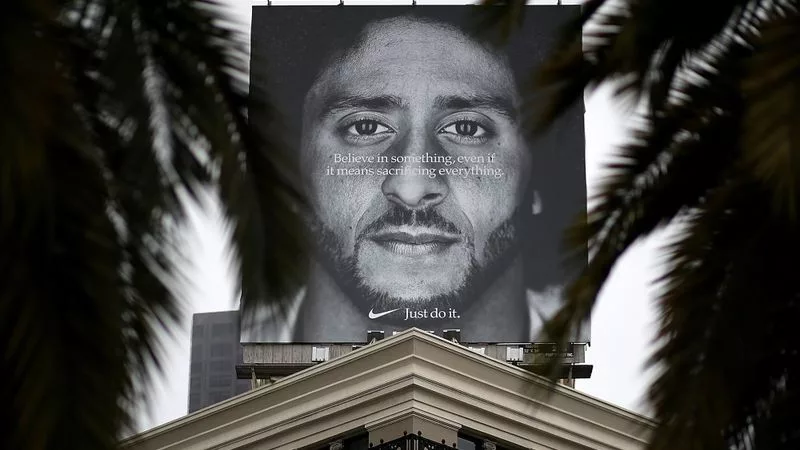“Kantar’s ‘Brand Inclusion Index’ found that not only is there a financial advantage to a strong DEI strategy, but that there is still plenty of room to stand out.”
According to a new report, a lack of DEI (diversity, equity and inclusion) could be costing businesses a lot of money. This is despite the recent divisive controversies around Bud Light*, Target** and other companies that are promoting inclusiveness in their advertising and promotion.
A new report by Kantar “finds that cutting DEI out of a company’s marketing strategy can result in major losses and may already be costing U.S. businesses $5.4 trillion. Kantar’s ‘Brand Inclusion Index’ found that not only is there a financial advantage to a strong DEI strategy, but that there is still plenty of room to stand out. Only six in 10 consumers can name the best inclusive brands unaided, according to the report.” The article linked here provides a fascinating glimpse into how consumers perceive companies, with a particular focus on the younger, more diverse demographic that holds significant value for major brands.
Through this lens, it becomes evident that companies consider DEI initiatives to be critical for maintaining relevance. However, a key question remains: do typical DEI campaigns and value statements effectively translate into fair and equitable experiences for consumers?
The cost of discrimination
Consumer preferences are evolving quickly, and marketers are adjusting their strategies to appeal to a younger, more diverse audience through DEI campaigns and lofty platitudes. Yet, it’s crucial for these efforts to also impact retail operations. In this way, they can avoid discrimination and capture potential profits within high-growth groups.
From the article: “Twenty-eight percent of people reported experiencing discrimination at a retail location, per the report. Black or African Americans, members of the LGBTQ+ community and people with disabilities are at the highest risk of discrimination. Discrimination at a retail location could be costly, setting up a potential loss of $681 billion, $499 billion and $491 billion for each group, respectively, per Kantar.”
Marketing often misses the mark
Many individuals feel disregarded or judged, and they often encounter more discrimination than marketers realize. Marketers, who tend to be privileged, can sometimes be disconnected from the experiences of these marginalized groups. Those underrepresented in advertising, such as Asian Americans and LGBTQ+ individuals, are also more likely to face discrimination, with 65% of them experiencing it in the past year.
An opportunity to appeal to customers and stand out
First and foremost, diversity, equity and inclusion are important for creating a fair, innovative and sustainable society, but DEI also ensures that organizations remain competitive. As the Kantar report reveals, DEI marketing can create a bridge across lines that are often heavily divided. Companies such as Nike, which is noted as the best brand in DEI, appeals to both men and women as well as white and Black consumers. And, both Democrats and Republicans consider Amazon the best brand overall for DEI. Additionally, “Nike, Amazon and Walmart occupied the top three spots for top-of-mind DEI performance, unprompted, across women, men, members of the LGBTQ+ community, white consumers and people of color.”
Be brave by connecting marketing and DEI
According to Valeria Piaggio, global head of DEI at Kantar, “Nike’s advertising has spoken for itself. Taking steps to diversity not only its talent but its product range has delivered fantastic results.”
As Piaggio further points out, “Nike… is probably one of those brands that is synonymous with brand bravery, and with equity,” said Piaggio. ‘Because they serve all athletes, they develop products for everyone — their marketing has been extremely brave.’”
DEI is not a standalone initiative intended solely for the HR department or DEI team. Instead, DEI must be weaved into the fabric of an organization, and that includes marketing. Your business – not to mention humanity – will be well-served to take a lesson from Nike and “Just do it.” The time is now. Your business and those you serve cannot afford to wait.
SunShower Learning is here to help
At SunShower Learning, we work with customers big and small who wish to ground their DEI missions in impactful training and development. With over twenty years of experience and a distinguished team of world-class DEI experts, we teach employees about implicit bias, and we impart skills to drive meaningful change – for your employees, customers and your business. Let’s talk!
*Bud Light partnered with an Instagram influencer, Dylan Mulvaney, to boost the popularity of their “Easy Carry” packaging. During March Madness of 2023, Dylan, who has been documenting her transition, was front and center promoting Budweiser’s special line of Pride-themed cans highlighting various pronouns. This was all-too much for some people and they called for a boycott of Bud Light. Some musicians and provocateurs got involved, and it blew up, fueled by political culture wars over gender and sexual orientation. Read more here.
**Target has offered LGBTQ Pride-themed merchandise for several years, and there have always been some angry and derogatory remarks in response. However, this year saw an unprecedented surge in hateful comments, largely fueled by malicious media outlets and a proliferation of online misinformation. Read more here.

